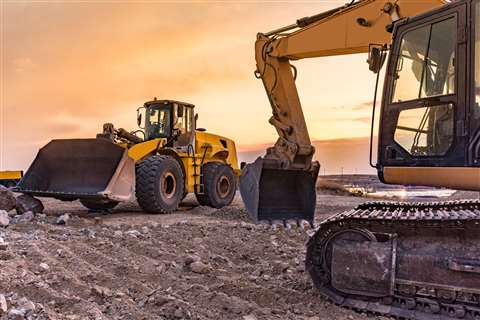Sustainable construction products
20 June 2022
With the publication of the first comprehensive package on sustainable products, the European Commission has determined another step under the Green Deal and the circular economy package: a new regulation establishing ecodesign requirements for sustainable products (ESPR).
The objective of the ESPR proposal is ‘to make sustainable products the norm on the EU market and reduce their overall environmental and climate impacts’.
The Regulation proposal builds on the current Ecodesign Directive (2009/125/EC), extending the scope from energy-related products to all products with few exceptions as food and feed.
In addition to expanding the scope of application, the regulation proposal addresses products’ entire life cycles, setting harmonised rules on energy performance and other environmental sustainability aspects that could significantly improve their circularity.
 The European Commission presents a new legislative package for sustainable products. (Photo: Adobe Stock)
The European Commission presents a new legislative package for sustainable products. (Photo: Adobe Stock)
Digital product passport
In order to promote transparency and traceability on the market and to ensure compliance with the specifications, the proposal provides for the establishment of a mandatory digital product passport (DPP).
The digital infrastructure behind the DPP should be based on harmonised standards and interoperability should be guaranteed. Product’s sustainability requirements are foreseen to be provided, including packaging, label, and the product passport.
The European Commission understands that the green transition goes hand in hand with digitalisation and considers that the DPP format will facilitate traceability, simplify market surveillance and compliance of products, and enable consumers to make more informed choices.
This will also affect the construction equipment industry and is therefore on CECE’s agenda for further review. Besides product categories such as textiles, furniture, mattresses, tyres, detergents, paints and lubricants, intermediate products like iron, steel and aluminium are considered to have potential for improvement and will probably be candidates for the ESPR.
What is the Ecodesign Forum?
The selection of products and related requirements will be subject to long-term planning through multiannual workplans.
The European Commission plans to carry out an impact assessment with regard to affordability for consumers and impact on competitiveness and administrative burden for Industry. Stakeholders will be involved in the selection process via the so-called “Ecodesign Forum”.
Like the Ecodesign directive, ESPR will establish a framework that will enable product-level rules to be laid out through delegated acts. Sustainability requirements would be defined product by product or for groups of products that share sufficient common characteristics.
The list of possible sustainable requirements is extensive; indeed, the ESPR aims to define rules to make products durable, reliable, reusable, upgradable, reparable, easier to maintain and refurbish and energy and resource efficient.
 The construction equipment industry needs to follow the work plan to identify machinery components that could be included as candidates for regulation. (Photo: Adobe Stock)
The construction equipment industry needs to follow the work plan to identify machinery components that could be included as candidates for regulation. (Photo: Adobe Stock)
It will also address the substances that inhibit circularity by making products easier to remanufacture and recycle. Moreover, it will facilitate the calculation of a CO2 or environmental footprint.
Not all the above-mentioned sustainability requirements will be included in the delegated acts; they will be selected on a product-by-product basis.
The ESPR will also set mandatory criteria for public procurement, drawing where necessary on existing voluntary measures.
Environmental performance of construction machinery
Regarding chemicals, the ESPR goes one step beyond existing chemical legislation and introduces the term ‘substances of concern’ (SoC) that tackle products’ substances that can be restricted for reasons linked to product’s environmental performance along its life cycle.
Moreover, the proposal includes the possibility for industry to ask the European Commission to validate their own set of ecodesign measures as an alternative to compliance with the future delegated acts.
The construction equipment industry needs to follow the work plan to identify possible machinery components that could be included as candidates for regulation. CECE will follow up this process and evaluate the impact of the proposal on machinery manufacturing and its supply chain.
The proposal for Regulation has been submitted to both European Parliament and Council. A final version of the Regulation is expected by mid-2030. Until the new framework is in place, the European Commission will continue its work under the existing Ecodesign Directive and has also published the new Ecodesign and Energy Labelling Working Plan for 2022–2024.
CECE will continue to monitor the roll out of this proposal and use its technical expertise to contribute to the legislative processes for a sustainable product policy.
STAY CONNECTED



Receive the information you need when you need it through our world-leading magazines, newsletters and daily briefings.
CONNECT WITH THE TEAM








